In India today, the price of speaking with empathy is rising—and for women, it often comes with fear, threats, and abuse. Two recent stories show this with heartbreaking clarity. Shaila Negi, a young Hindu woman from Uttarakhand, and Himanshi Narwal, the newly-wedded widow of an army officer killed in a terror attack in Kashmir, both chose peace over hate. Both asked people not to turn their personal pain into communal anger.
And for that, both Shaila and Himanshi have been punished.
In different states, under different circumstances, their simple calls for calm were met with a storm of trolling, rape threats, and cruel attacks on their character. What do these responses tell us about who gets to speak up in India—and what happens when women choose harmony over hatred?
Nainital, April 2025: a city on edge
It started with a tragic incident.
On the day of 30th April in Nainital, Uttarakhand, a complaint was registered with the police about the alleged sexual abuse of a 12-year old girl. A 76-year old man named Usman was accused of the same and this news of the assault by the Muslim man spread as quick as water.
Outside the police station, a crowd began to gather. At first, it was a protest demanding justice. But soon, the situation changed. Hindu organisations arrived, and slogans turned aggressive. Shops owned by Muslims were vandalised. A mosque was stoned. Vehicles were damaged, and the windows of nearby homes were shattered. The main market of Nainital shut down.
In a city known for its quiet hills and peaceful coexistence, this felt like something breaking open. The serene air was now filled with loud anger and blame, and a mob ready to burn and break the spirit of unity to the ground.
But, only one voice rose above the noise.
Shaila Negi: voice of courage
A video began circulating on social media. It showed Shaila Negi, standing in the middle of a charged crowd. Hindu slogans echoed around her, but she wasn’t there to join them.
But, she continued to request people to stop, to think, to not let this tragedy turn into a hatred riot, and she stood firm on the ground fighting from all the loud comments and blames. She said, ‘We want justice, not hatred.‘ ‘Don’t make this about religion. This is about a girl who needs support, not violence.‘
In a place where women are often told to stay quiet and not involve themselves in “public matters,” Shaila stood like a mountain, pushing back against rising hatred.
Her courage was undeniable. In a place where women are often told to stay quiet and not involve themselves in “public matters,” Shaila stood like a mountain, pushing back against rising hatred. As the mob tried to shout her down, she held her ground.
And for that, she became a target.
From applause to abuse: the backlash begins
At first, many praised Shaila for her bravery. But soon, the tone shifted. On social media, she began receiving rape threats. People questioned her “loyalty” to her religion. They accused her of being a “sympathiser,” of protecting Muslims, of standing against “Hindu pride.” The same video that had shown her courage was now being used to attack her.
The message was clear: a woman who steps out of line—especially to defend unity—is not just wrong. She is dangerous.
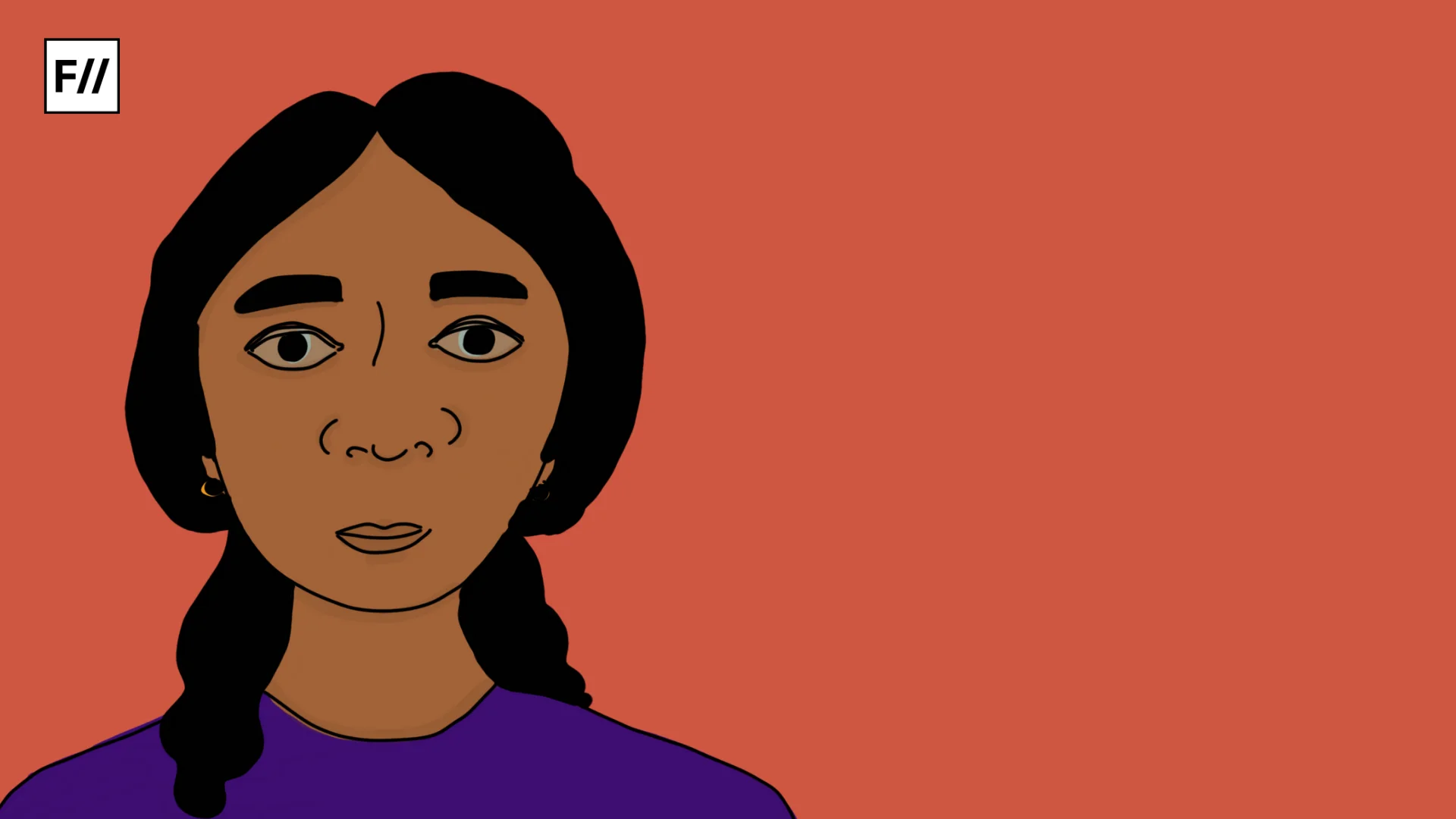
This isn’t a new pattern. In fact, just days earlier, in a completely different part of the country, another woman faced something similar.
Himanshi Narwal: from national grief to targeted hate
On April 22, newlyweds Lieutenant Vinay Narwal and Himanshi Narwal were on their honeymoon in Pahalgam, Kashmir, when a terror attack unfolded. Vinay, an Indian Army officer, was held at gunpoint, questioned about his religion, and shot to death. The attack claimed over 20 lives.
Himanshi’s photo—dressed in red bridal bangles, sitting silently next to her husband’s coffin—became a national symbol of grief. Media outlets, social media users, and politicians shared her image to show the pain of a “Hindu wife” who lost her soldier husband at the hands of “Muslim terrorists.”
But then, Himanshi spoke.
A call for peace that sparked rage: the story of Himanshi Narwal
In an emotional message, Himanshi asked the country not to spread hate. ‘We don’t want people going against Muslims or Kashmiris. We want peace and only peace,‘ she said.
Her words, spoken in grief but full of maturity and compassion, were quickly twisted. The same people who had shared her photo with hashtags like #JusticeForVinay now turned against her.
The same people who had shared her photo with hashtags like #JusticeForVinay now turned against her.
She was called anti-national, accused of being a sympathiser of terrorists, and faced a coordinated wave of online abuse.
Himanshi’s social media posts were flooded with threats and slurs. Strangers dug into her online activity, pointing to Muslim friends, restaurant reviews, and old photos. She was called ‘pro-Pakistan,‘ ‘Islamist apologist,’ and worse. Even her love for her husband was questioned. Some said she didn’t “grieve properly.” Others said she had betrayed the army.
This was not just trolling. It was an attempt to shame, silence, and erase a woman who refused to become a tool of hate.
The pattern we can’t ignore
What do Shaila and Himanshi have in common? They’re both Hindu women. They’re both victims—one of public threats, the other of personal loss. And they both refused to let their identity be used to spread violence.
In return, they were abused, threatened, and shamed—not for any crime, but for daring to be calm in a time of fire, and for choosing unity over division.
This tells us something important about the times we live in: a woman who speaks with compassion is often more dangerous to hate-mongers than a man who calls for violence.
When women refuse to be puppets
There is a growing expectation in India’s public sphere: that women, especially Hindu women, should act as symbols of honour, pain, or pride—but only when it serves majoritarian narratives. They are expected to cry on command, shout in rage, or stand as victims—so long as it fuels communal anger.
There is a growing expectation in India’s public sphere: that women, especially Hindu women, should act as symbolsof honour, pain, or pride—but only when it serves majoritarian narratives.
But when these women speak for peace? When they choose dignity over divisiveness? They’re called traitors.
It’s important to ask: why does this happen?
Because hate needs symbols, and it hates when those symbols refuse to follow the script.
Speaking up as a woman in India: precarious, dangerous, necessary
In a country where women are still fighting for basic rights, the act of speaking up—especially about communal violence—is not just brave. It is risky. Whether it’s a student activist, a journalist, or a grieving widow, the moment a woman speaks against hate, she is no longer seen as “neutral.” She is seen as political, problematic, or even dangerous.
The fact that rape threats are the first form of punishment says something about how patriarchy and majoritarianism work hand in hand. It’s not just about silencing voices—it’s about breaking spirits.
But despite this, women like Shaila and Himanshi still speak. Still resist. Still believe in a future that isn’t built on fear.
We must listen to women like Shaila and Himanshi—and protect them
India is not lacking in brave women. What it lacks is a society that protects them after they speak.
Shaila Negi did not have to go to the protest that day. Himanshi Narwal could have stayed silent in her grief. But they didn’t. They stood up—not for attention, not for fame—but for peace, and for something better than revenge.
In doing so, they showed us what real strength looks like. Not loud slogans. Not angry mobs.
But quiet, unwavering dignity in the face of hate.
And for that, they deserve more than just our applause. They deserve safety. They deserve support. They deserve a country that stands with them.
Because if India cannot protect its women when they speak for peace, then what kind of nation are we building?
About the author(s)
Anushka Bharadwaj is a journalism graduate from SCMC Pune. She is an intersectional feminist with a deep interest in gender, caste, politics, and mental health. When she’s not writing or reading, she’s usually found lost in poetry, dancing to her favourite songs, or discovering new music—always reflecting on the world through stories.
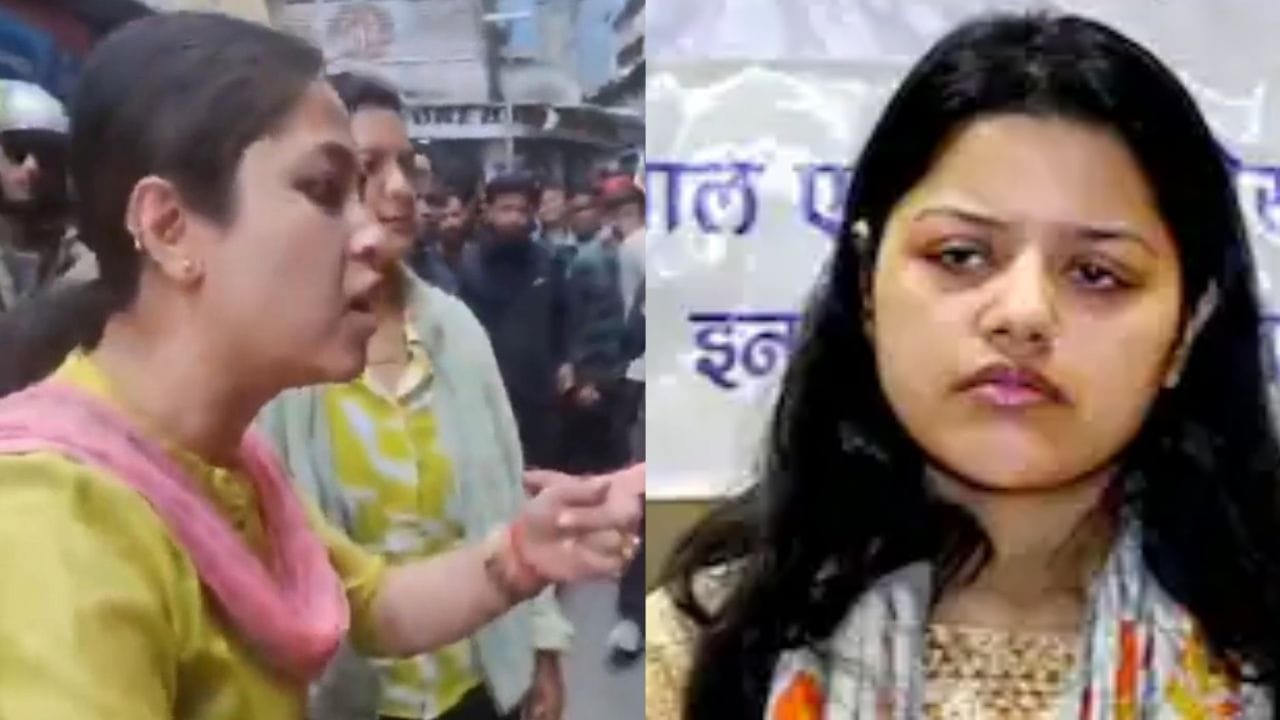
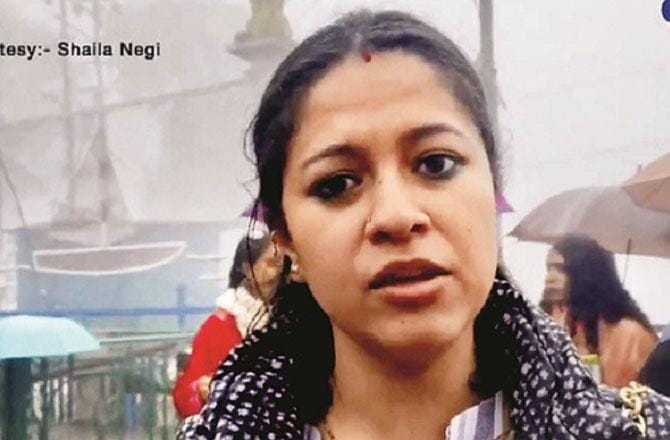
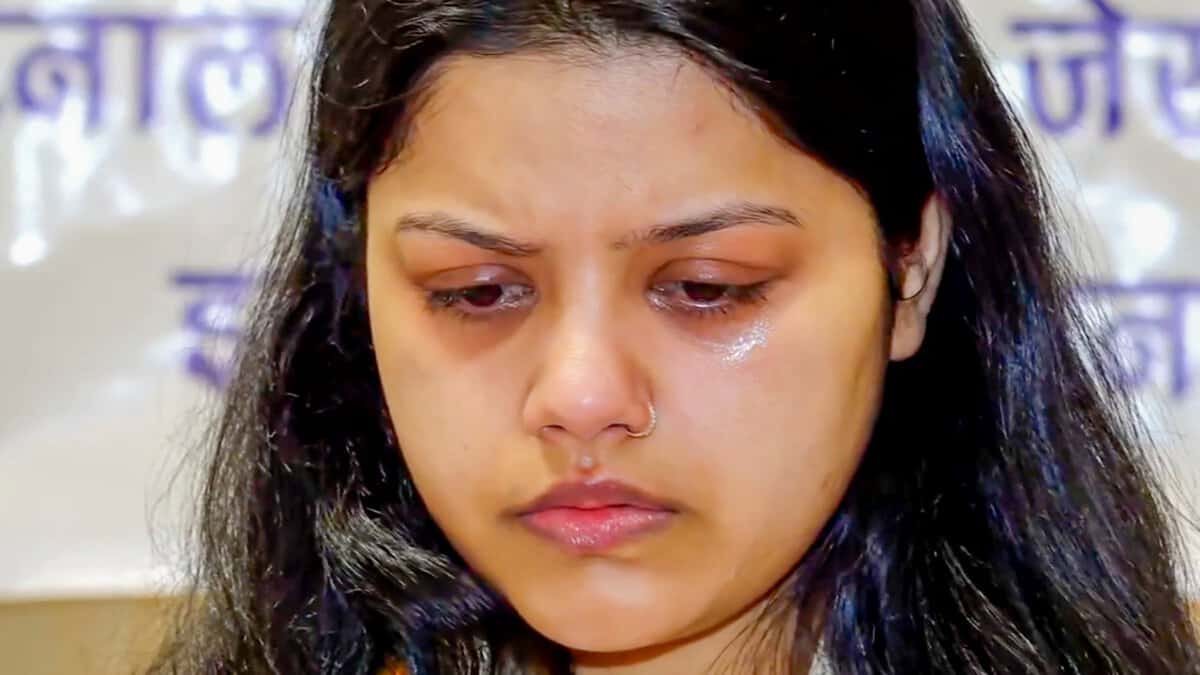
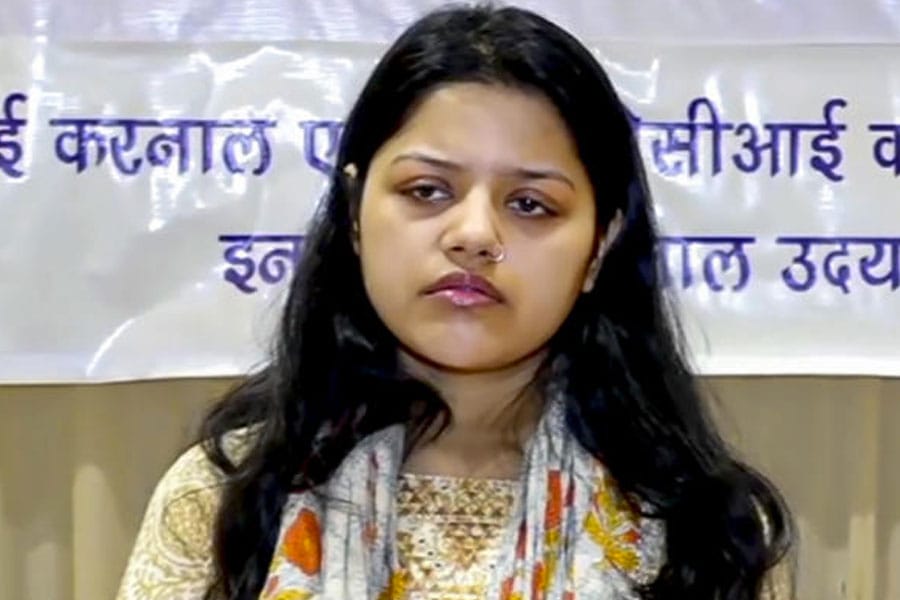





The same journalists will chastise those who do not agree with their leftist agenda, make them feel ashamed of being Hindu, they project honesty as hate, defence as war mongering, deny atrocities against Hindus and are dangerous to the sovereignty of the nation. Hypocrisy much. I am a women, a feminist, a proud Hindu and I have nothing do to with your agendas and corrupt political whitewashing. Feminism has nothing to do with left ideology, please do it not exploit it for your benefit!